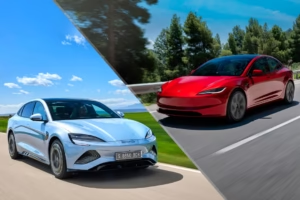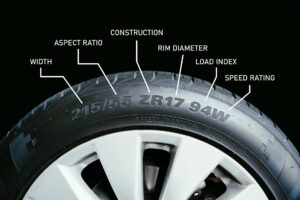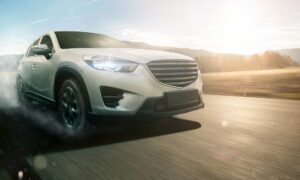Do hybrid cars use lithium batteries? This is a common question for anyone curious about hybrid vehicle technology. The type of battery used plays a critical role in a hybrid’s performance and efficiency. In this blog, we’ll talk about lithium-ion batteries and technologies used to power innovative vehicles that hybrid cars undoubtedly are.
Understand the Role of Batteries – How Do Hybrid Cars Work?
Hybrid cars combine a traditional internal combustion engine with an electric motor to deliver efficient performance that’s also environmentally friendly. This dual-system design allows hybrid vehicles to optimize fuel consumption and reduce emissions. The battery serves as the energy source for the electric motor, which works in tandem with the engine during acceleration, low-speed driving, or when additional power is needed.
Regenerative braking plays a key role in hybrid functionality. When the driver brakes or decelerates, the system captures kinetic energy and converts it into electricity, which is then stored in the battery. This process helps recharge the battery without external charging, making hybrids highly efficient. By seamlessly switching between the engine and motor, these vehicles deliver a smoother driving experience while maximizing fuel efficiency.
Why Are Batteries Crucial for Hybrid Vehicles?
Without a reliable and efficient car battery, the electric motor cannot operate, undermining the hybrid system’s performance and benefits. One key reason batteries are crucial is their ability to support energy storage and discharge. They store energy produced by the engine or regenerative braking and release it as needed to power the electric motor. This reduces the reliance on fuel and minimizes emissions.
Additionally, a good battery ensures optimal vehicle performance. It enables the electric motor to provide torque for acceleration and supplement the engine when extra power is required. The role of the battery extends beyond performance to influence car maintenance, operating costs, and sustainability, making it a vital component of hybrid vehicle technology.
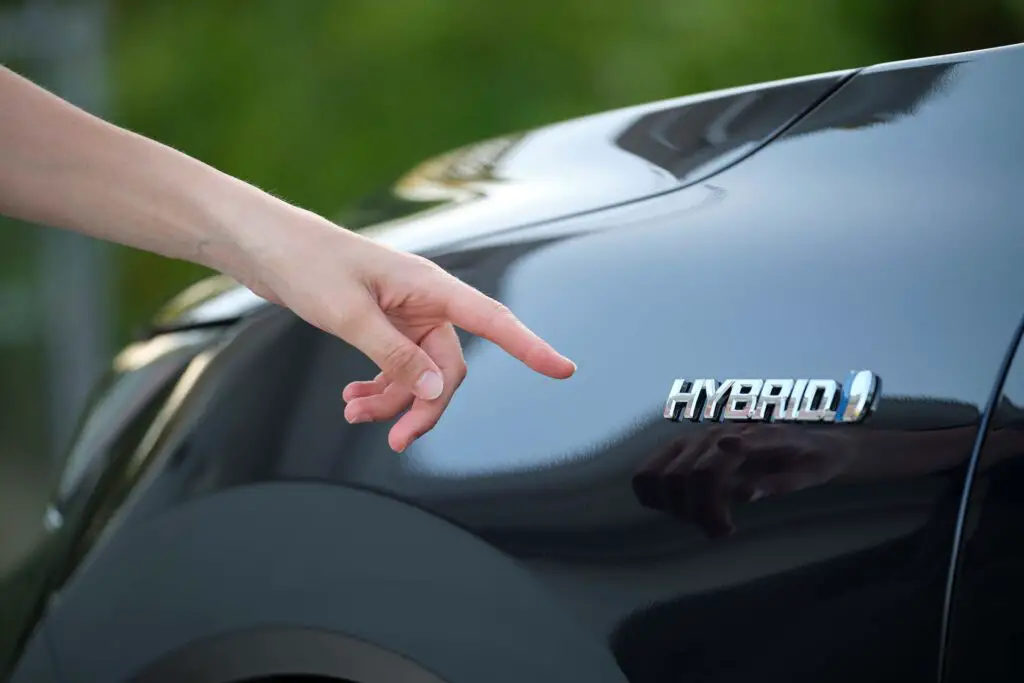
Do Hybrid Cars Use Lithium Batteries?
Do hybrid cars use lithium-ion batteries? Yes, many use lithium-ion batteries due to their superior performance and efficiency. Lithium-ion batteries are capable of storing a high amount of energy relative to their size. This makes them ideal for hybrid vehicles, where space and weight are crucial considerations. Their ability to charge and discharge quickly also aligns with the demands of a hybrid car’s dual power system.
Lithium-ion batteries are commonly found in newer hybrid models because of their longevity and low self-discharge rates. They are designed to last the lifetime of the vehicle under normal conditions, making them a cost-effective choice in the long run. Despite being more expensive to produce than other types of batteries, the benefits they offer in terms of performance and energy efficiency make them a popular option among automakers.
What Other Types of Batteries Are Used in Hybrid Cars?
While lithium-ion batteries dominate the market for newer hybrids, other battery types have been widely used in hybrid vehicles, particularly older models. Nickel-metal hydride (NiMH) batteries have been the standard for many years due to their durability and proven performance. These batteries are more affordable than lithium-ion batteries but are heavier and have a lower energy density.
Lead-acid batteries, typically found in conventional vehicles, have also been used in some hybrid applications. However, their low energy storage capacity and shorter lifespan make them less suitable for modern hybrid systems.
Supercapacitors, though not as common, are another alternative used in some hybrid designs. These components excel in delivering bursts of power and recharging rapidly, making them suitable for specific performance-focused hybrids. Each type of battery offers its own advantages – of course, the choice depends on the vehicle’s design and intended use.
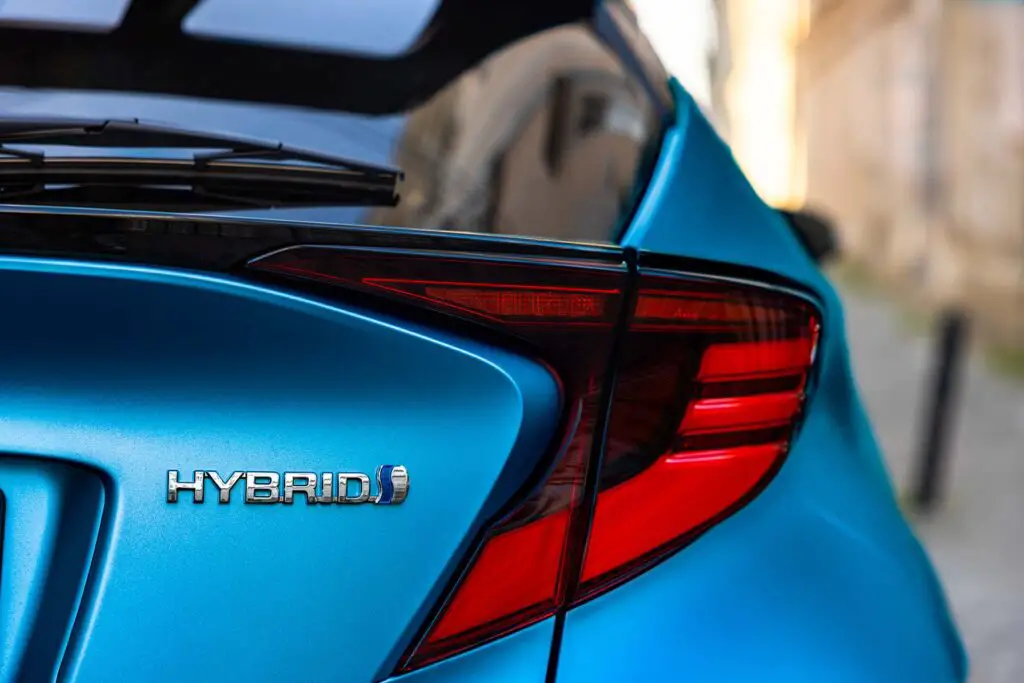
Advantages of Lithium-Ion Batteries in Hybrid Cars
Lithium-ion batteries have revolutionized vehicle technology, offering several advantages that enhance efficiency, performance, and sustainability. These batteries are prized for their lightweight design, high energy density, and fast charging capabilities, making them the preferred choice for modern hybrids.
Lightweight and Compact Design
One of the standout features of lithium-ion batteries is their lightweight and compact construction. These batteries weigh significantly less than older technologies like nickel-metal hydride or lead-acid, which means they reduce the overall weight of the vehicle. A lighter car requires less energy to operate, so its performance is better, and it needs less fuel. The compact battery design allows manufacturers to integrate them seamlessly into hybrid systems without compromising interior space or vehicle functionality.
Higher Energy Density
Lithium-ion batteries boast a much higher energy density than other battery types. This means they can store more energy in a smaller, lighter package, providing the power needed for the electric motor while maintaining a manageable size. This feature is crucial for hybrids, as it ensures longer electric-only driving ranges and better overall efficiency. The ability to store substantial energy also allows for smoother transitions between the electric motor and the internal combustion engine.
Improved Charging Efficiency
Another key advantage of lithium-ion batteries is their improved charging efficiency. These batteries recharge very quickly, whether through regenerative braking or external charging systems, minimizing energy loss during the process. Their ability to handle frequent charge and discharge cycles without significant degradation ensures reliable performance over time, making them a durable and sustainable choice.
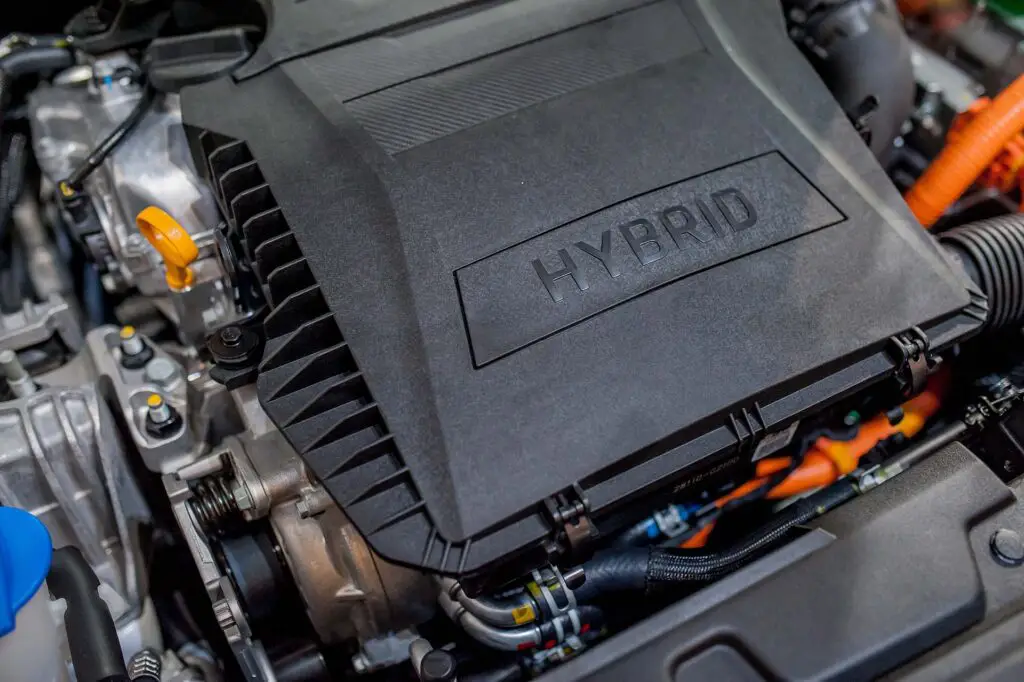
What Are the Limitations of Lithium-Ion Batteries?
Despite their many advantages, lithium-ion batteries come with certain limitations that affect their performance. These challenges include high production costs, concerns about durability and lifespan under specific conditions, and potential environmental impact. While efforts are being made to address these issues, they remain key factors for manufacturers and consumers to consider – it’s something you should keep in mind when deciding whether you want to buy a hybrid car or not. Let’s take a look at these three main challenges.
Cost Considerations
Lithium-ion batteries are expensive to produce, largely due to the high cost of raw materials like lithium, cobalt, and nickel. These materials require extensive mining and refining processes, which drive up costs. As a result, hybrid vehicles equipped with lithium-ion batteries are often priced higher than those using older battery technologies. Although technological advancements are gradually reducing production expenses, the initial cost of lithium-ion batteries remains a significant barrier to widespread adoption.
Durability and Lifespan
While lithium-ion batteries are known for their longevity, they can degrade over time, especially under extreme conditions. Factors like exposure to high temperatures, frequent deep discharges, and repeated charging cycles can reduce their efficiency and capacity. Over the years, this degradation can lead to a noticeable decline in performance.
Environmental Impact
The environmental impact of lithium-ion batteries is a concern that shouldn’t be overlooked. The mining of lithium and other materials used in these batteries can lead to habitat destruction, water contamination, and high energy consumption. Additionally, improper disposal of used batteries poses risks due to their toxic components. Recycling programs are being developed to mitigate these impacts, but issues related to battery recycling infrastructure are far from solved.
Which Future Trends Are Expected in Hybrid Car Battery Technology?
Advancements in battery technology play a central role in shaping the future of hybrid cars. Manufacturers and researchers are focused on improving energy efficiency, reducing costs, and addressing environmental concerns to meet the growing demand for hybrid cars. Trends range from refining lithium-ion batteries to exploring innovative alternatives.
Advancements in Lithium-Ion Technology
Lithium-ion technology remains a primary focus for improvement. Researchers are developing next-generation lithium-ion batteries with higher energy densities and greater power storage that come without increasing size or weight. Also, enhanced thermal management systems are being integrated to improve safety and reduce the risk of overheating. The goal is to ensure better durability in extreme conditions.
In addition, solid-state lithium batteries are gaining traction. These batteries replace the liquid electrolyte with a solid material, making them safer and capable of holding more energy. Solid-state batteries charge faster and last longer, offering a promising upgrade over current lithium-ion designs. As production methods for these batteries become more cost-effective, they could become the standard for hybrid vehicles.
Emerging Alternatives to Lithium Batteries
The need for more sustainable solutions has led to new alternatives that could possibly replace lithium-ion batteries. Sodium-ion batteries are gaining attention for their lower cost and abundant raw materials, making them an environmentally friendly option. Similarly, lithium-sulfur batteries, with their high energy potential and lightweight design, are currently being developed for use in hybrid cars. These technologies promise lower environmental impact, paving the way for a more sustainable future.
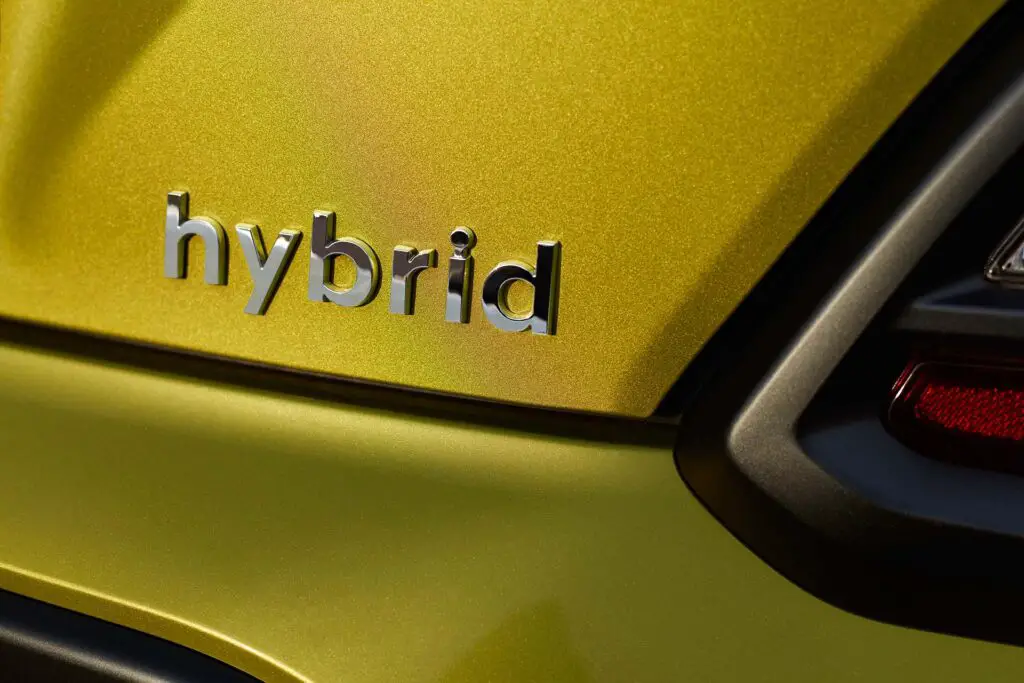
All in All, Are Lithium Batteries the Best Choice for Hybrids?
Lithium-ion batteries have established themselves as the leading choice for hybrid vehicles due to their superior energy density, lightweight design, and efficient performance. They enable smoother operation, better fuel efficiency, and longer electric driving ranges compared to older battery technologies. Moreover, their ability to recharge quickly and handle frequent charge-discharge cycles makes them a reliable and practical option.
However, lithium-ion batteries are not without downsides – we must keep that in mind. High production costs, important environmental concerns, and performance degradation over time present huge challenges. While advancements in lithium-ion technology and recycling infrastructure are addressing these issues, emerging alternatives like sodium-ion and solid-state batteries could provide viable competition in the future. But for now, lithium-ion batteries remain the best option for most hybrids.

